5 Engaging and Easy Tips on How to Use Task Cards
I’ve thought about how to use task cards in my classroom so that it is engaging and meaningful for my students. I enjoy using task cards in the classroom because it’s a way to chunk information, and they are getting deliberate practice and review of information they were taught.
In This Post
I will share five ways you can use task cards in the classroom, which can be done in any subject. Students can work independently or cooperatively in stations, you can use them as Entrance or Exit tickets, they can be added to games, you can post them around the room for movement, and they can be used for homework. I will also share a few ways you can store them.
No matter what you are teaching, be sure you are using the strategies in this free guide 5 Daily Must-Do Routines to Run Your Classroom Like a Pro. Click this link or enter your email address to the right.
Disclosure: This post contains some affiliate links for your convenience. As an Amazon Associate I earn from qualifying purchases with no cost to you.
Using Task Cards in the Classroom
You can create your own cards or purchase them. I have created various Science task cards that my students have used in stations.
When students use task cards, they are making stronger neural connections in their brains. It’s so important for students to review material they were taught within 24 hours. So, if you can apply any of these ideas after teaching, your students will benefit! They will also benefit from additional practice after that first 24 hours.
Exit/Entrance tickets
In my classroom, students complete bell work when they walk in. Assigning one or two task cards as bell work (or entrance tickets) is a great way to review information they were taught in previous lessons, or use it as a preview to what they will be learning.
You can post the cards on the screen to save paper, and have students respond in their notebooks or on a sticky note. You can do the same with Exit tickets at the end of your lesson.
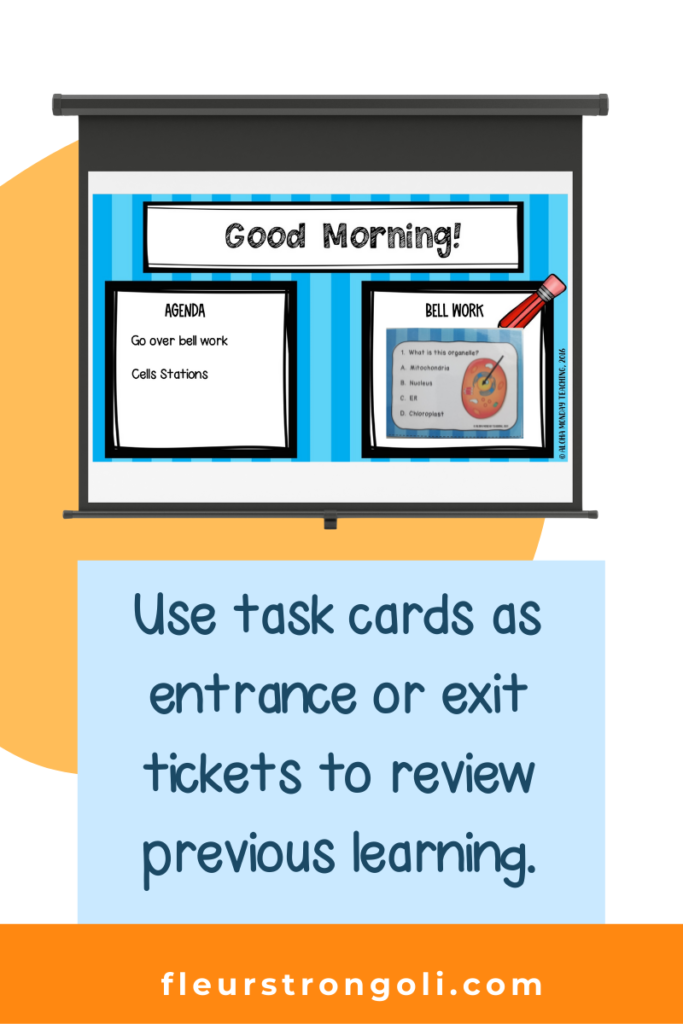
Task Card Station
I LOVE using Stations in my classroom. It gets students rotating around the room doing different types of activities. They can work alone, or with their group members. This gives them an opportunity to work cooperatively with others, which is another great way to build those neural connections!
Games using Task Cards
You can also make a game using the cards. This can be in your stations or something students do when they’ve completed their assignments. They can be added to any board game you might already have in your classroom. In order for students to take their turn, they have to answer the question correctly. What a fun way to use task cards! Read my blog post for more ideas on using games in the classroom!
Around the Room
To get students moving and out of their seats, consider posting task cards around the room. They walk around with a partner and answer the questions on the cards.
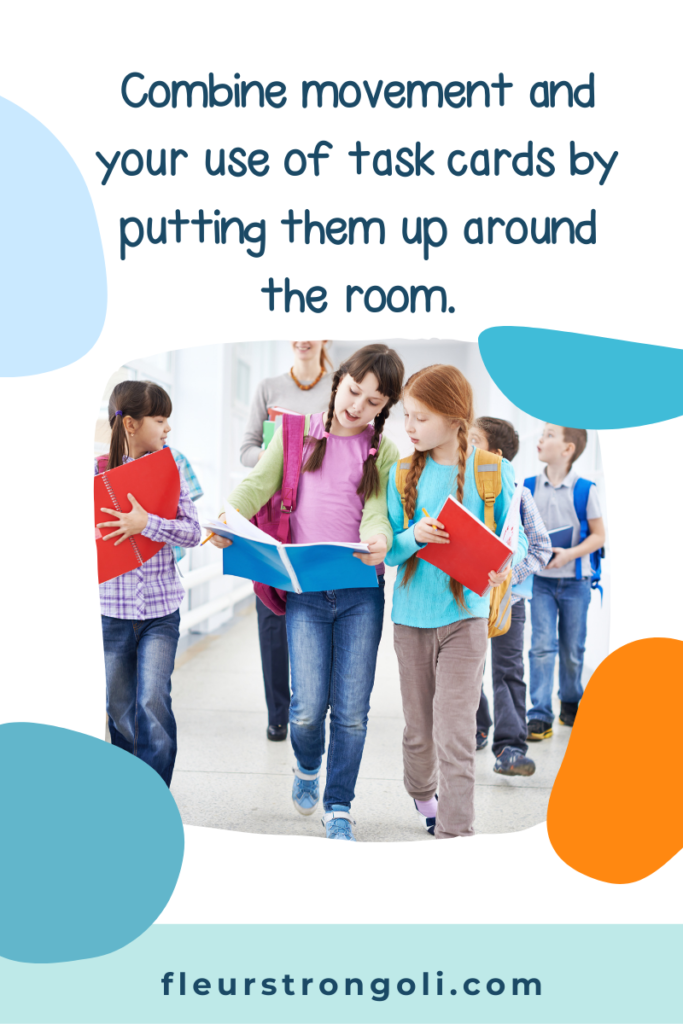
Homework with Task Cards
Rather than giving a worksheet for homework, assign several cards. Give students about 5-10 cards, considering their level of understanding. This will make homework feel a little different and less daunting.
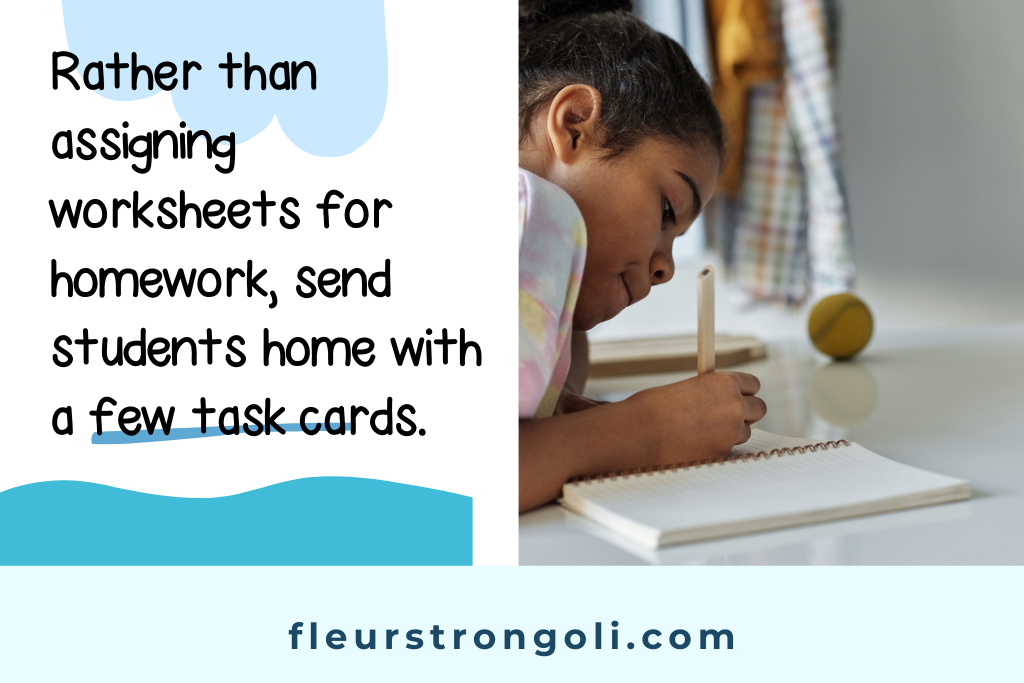
Storing your Task Cards
There are several different ways to store your cards. I have used Ziploc bags, photo holders, and sheet protectors.
I either laminate them, or print them on cardstock so they can last year after year. Then I cut them out. If you don’t want to cut them out, you can simply put the whole page in a sheet protector. Then it’s like one BIG card with multiple questions
Using Ziploc bags makes it easy to store in a file cabinet or binder with your unit materials. Photo boxes or index card holders work great too. They’re sturdy, and if you like to color coordinate topics, these are a great way to do so.
Remember to teach students how to properly care for your task cards and how to store them. That way, you will be able to use them for several class periods, days, or even years!
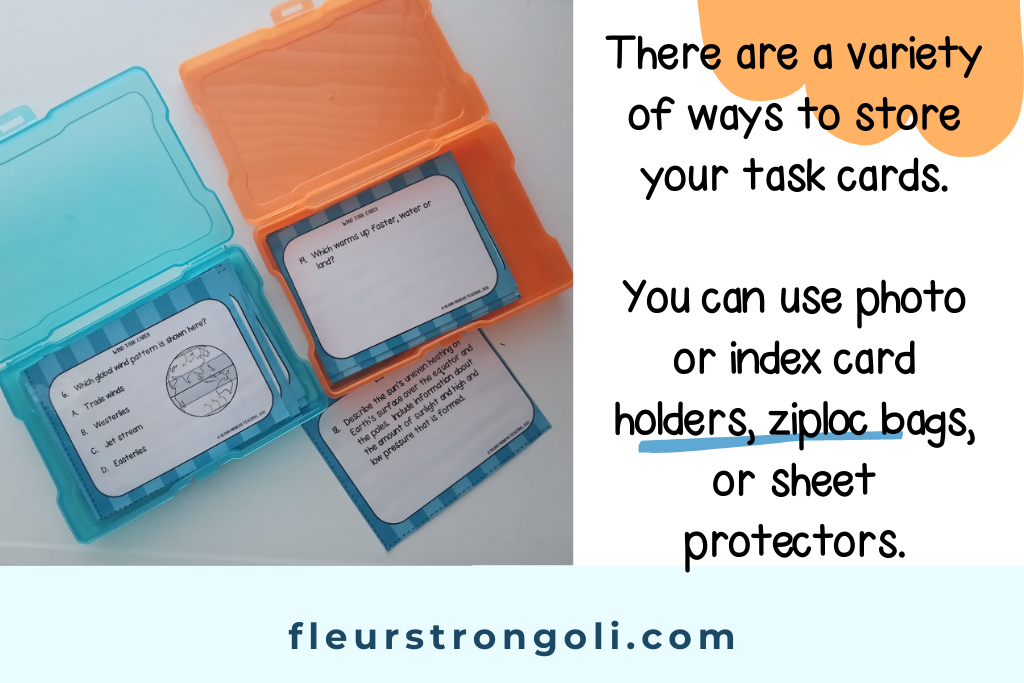
Wrap Up
Task cards are an engaging way to review material with your students. This is an important piece of learning that their brains need to build stronger neural connections. You can use them as entrance and exit tickets, in stations or choice boards, in games, around the room, or as homework. There are different ways to store your cards, such as using Ziploc bags, photo boxes or index card holders, or in sheet protectors.
And remember, get your free guide 5 Daily Must-Do Routines to Run Your Classroom Like a Pro by clicking this link or entering your name and email address on the right.
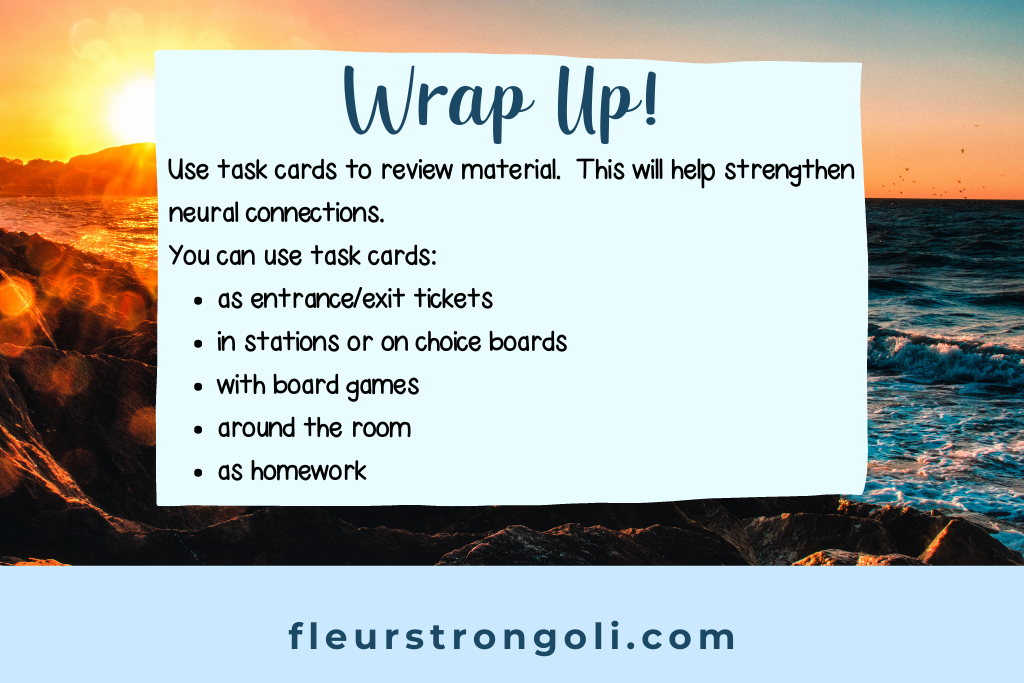
Read More
3 Simple Ways to Incorporate the Use of Games in the Classroom
Resources Mentioned
Your Turn
What is your favorite thing about task cards? What is one thing you will try after teaching your students a new concept? Reply below or send me an email or message on Facebook!
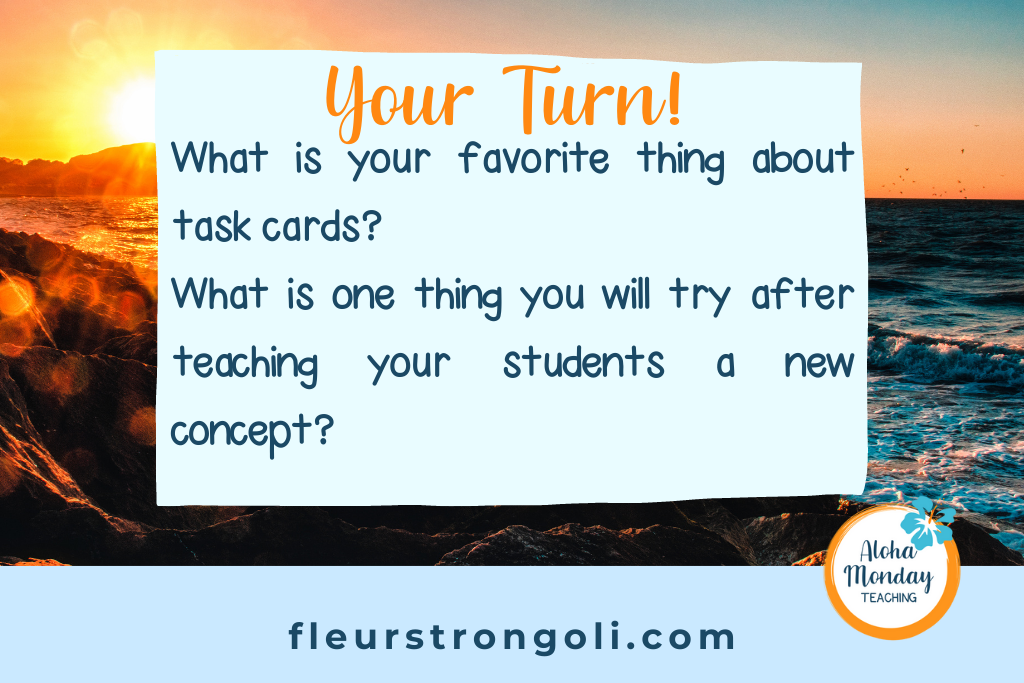

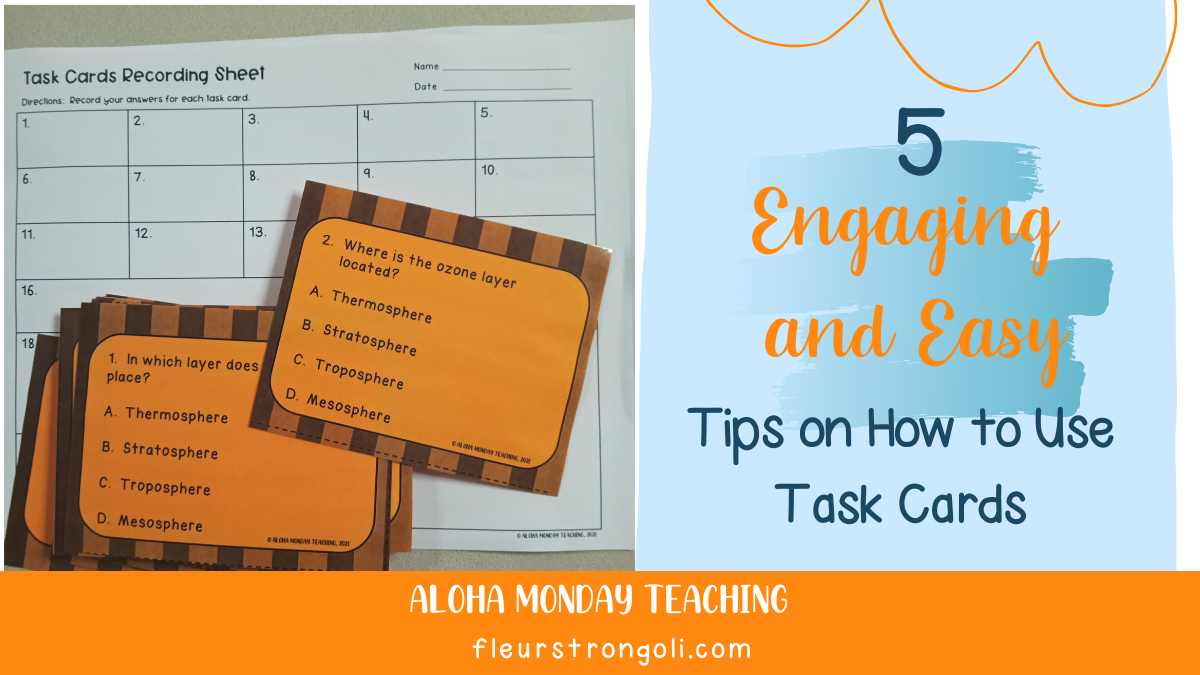

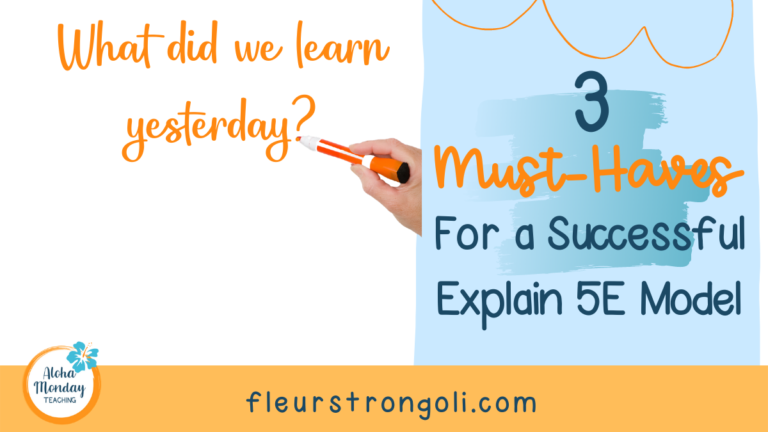

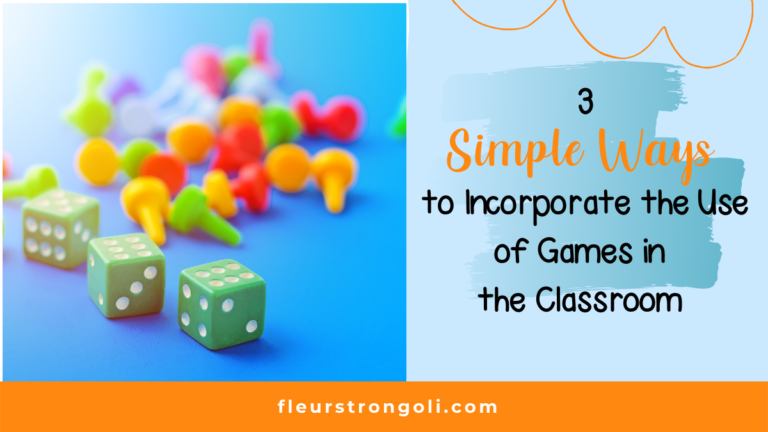

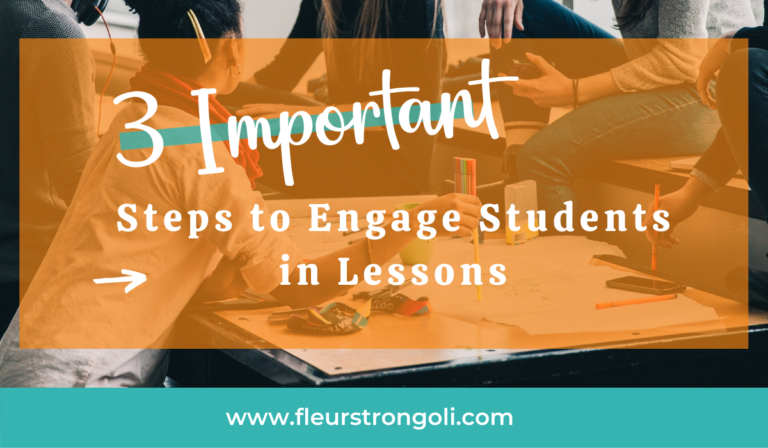
3 Comments